
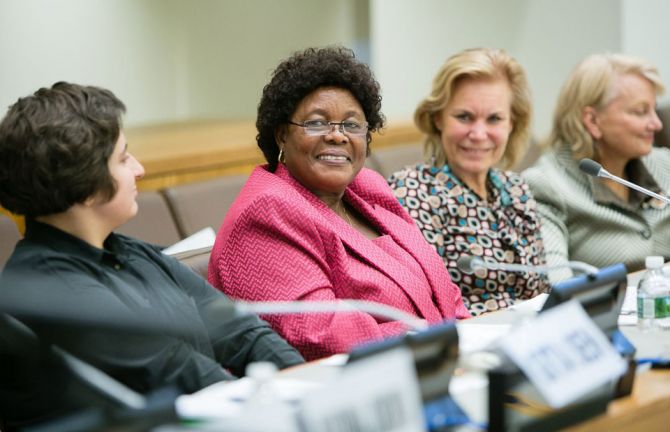
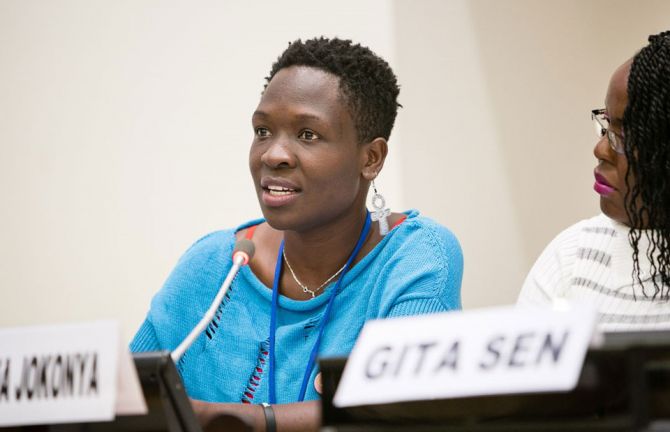
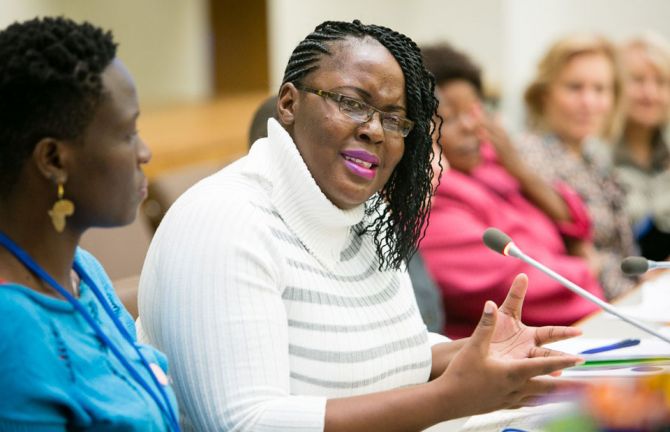
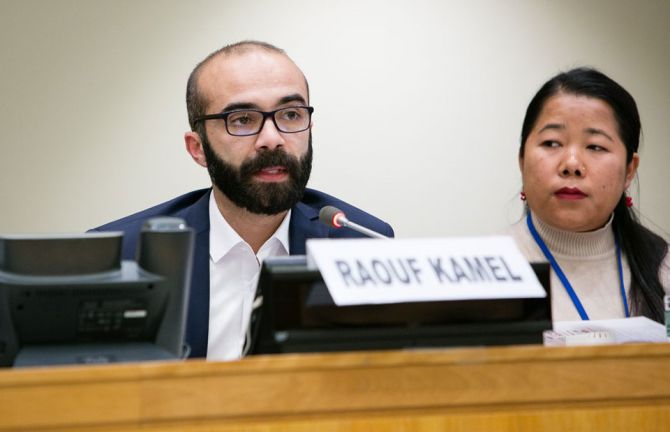
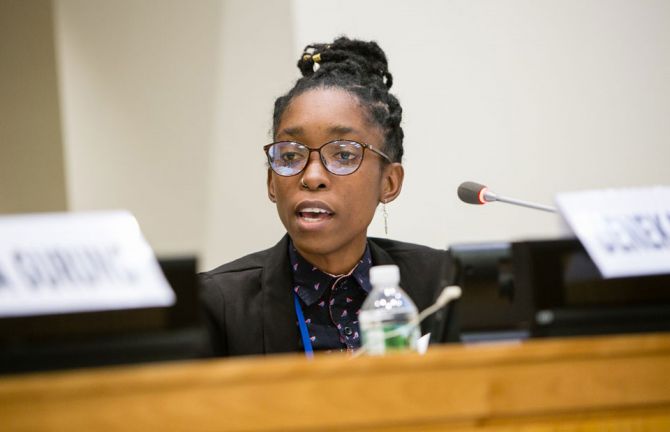
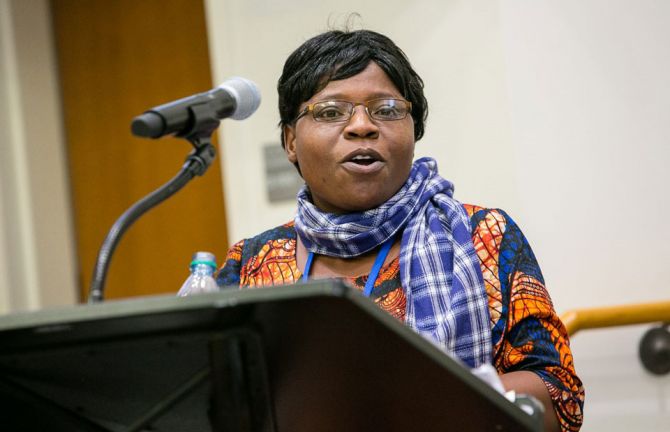
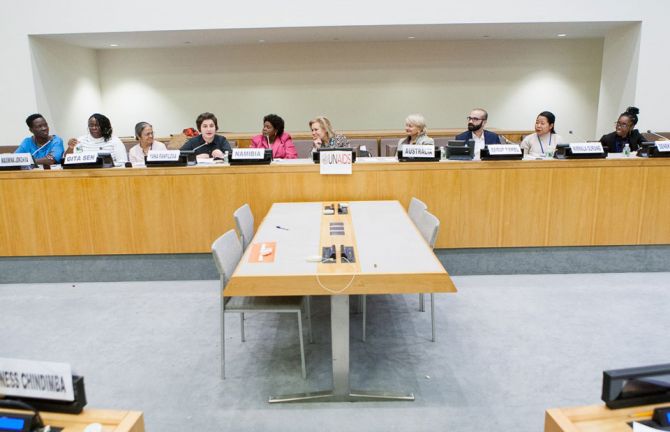
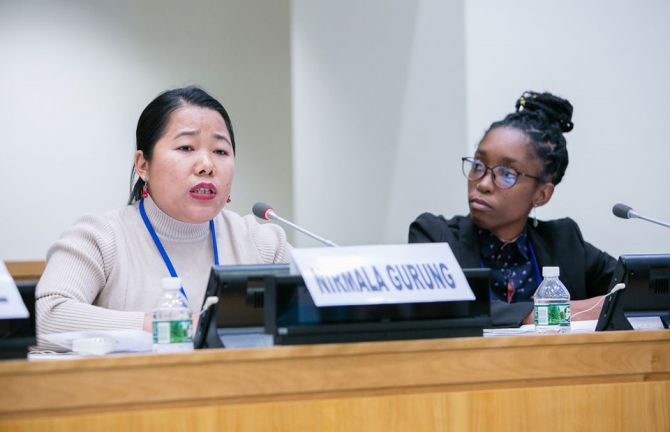
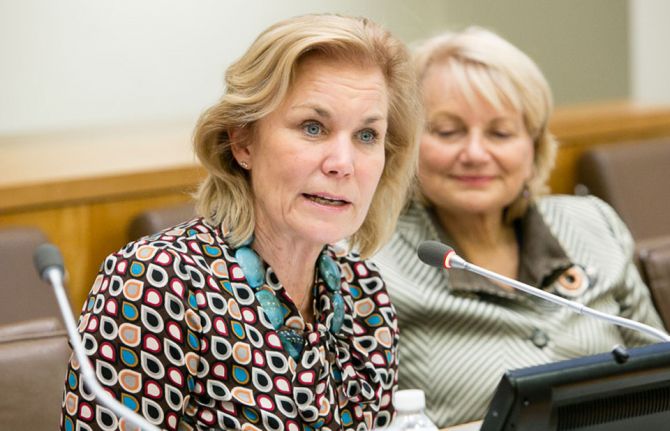
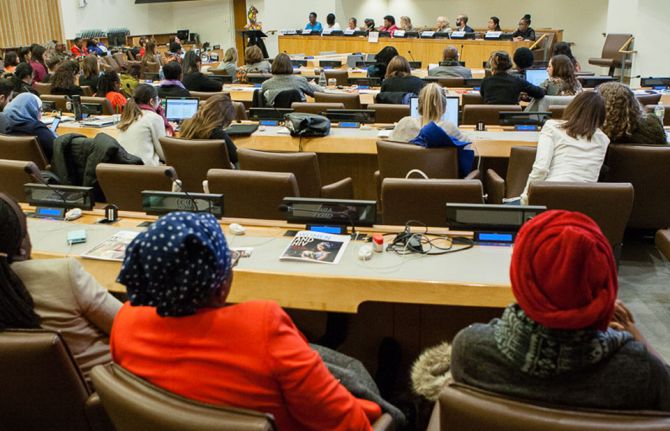
Feature Story
Stepping it up for adolescent girls
15 March 2019
15 March 2019 15 March 2019“Without our voice, you are doing it for you, not for us”, said Winny Obure, a youth leader and women’s rights defender from Kenya, at the United Nations in New York, United States of America.
She was joined by other young women demanding the removal of barriers to their sexual and reproductive rights and for adolescent girls to be empowered. The event—Step It Up!—was a call to action for the most left behind adolescent girls and was convened by UNAIDS, the ATHENA Network, the Governments of Australia and Namibia, and UN Women, with 25 partners from the United Nations and civil society.
Adolescent girls and young women are still disproportionally affected by HIV. One million adolescent girls live with HIV globally and every week 7000 adolescent girls and young women become infected with HIV. Comprehensive sexuality education is so limited that levels of knowledge about HIV prevention among young people have remained flat over the past 20 years.
“We will not reach the Sustainable Development Goals if the voices and aspirations of adolescent girls are oppressed,” said Gunilla Carlsson, UNAIDS Deputy Executive Director, Management and Governance.“Where is the accountability for the millions of adolescent girls being left behind?”
All too often, adolescent girls remain invisible to decision-makers, especially if they belong to groups that are discriminated against, criminalized or stigmatized. As many of the participants pointed out, they are subjected to human rights violations, including violence and harmful practices, and denial of their sexual and reproductive health and rights.
“We need to move away from these meeting rooms and go to communities to talk to adolescent girls and young women. We need to address the uniqueness of specific groups of girls, of their specific needs .We have the solutions, it’s just a matter of including us in the discussion,” said Maximina Jokonya, a young woman from Zimbabwe.
“Teenage girls are often out of sight and out of mind and they are not where the power is, it’s still with men,” said Sharman Stone, Australia’s Ambassador for Women and Girls. She highlighted the barriers that girls face in the Pacific, where they are denied contraception and subjected to high levels of violence. She said that a key priority for Australia during humanitarian crises is to ensure access to sexual and reproductive health services.
The Minister of Gender Equality and Child Welfare of Namibia, Doreen Sioka, spoke about championing the rights of adolescent girls and young women, comprehensive sexuality education and integrated sexual and reproductive health and HIV services. She outlined major achievements in fulfilling international HIV targets. A new law in Namibia enshrines the right of all children to access critical services—at 14 years of age, children can now be tested for HIV without permission from their parents or guardians.
The young women at the event underscored their realities and restricted opportunities, as well as what works to improve their lives. Deneka Thomas, from Trinidad and Tobago, described how she uses art in schools to interact with lesbian, gay, bisexual and transgender young people and girls traumatized by bullying, rape and other forms of violence.
Raouf Kamel of AIDS Algérie spoke about the first-ever initiative in the Middle East and North Africa to hear the voices and experiences of especially marginalized groups of women. They had all experienced violence, pointing to adolescence as a crucial point in life when the risks to their health and safety, and of HIV infection, are especially marked.
The participants concluded that much more needs to be done to address the needs and rights of adolescent. Investing in inclusive, quality education, in HIV, sexual and reproductive health services and in mental health is key. Other important actions include preventing and responding to gender-based violence, promoting women’s rights, engaging boys and investing in youth organizations and community-based initiatives led by, and for, young women.
The event was held on 13 March on the margins of the sixty-third session of the Commission on the Status of Women.
Quotes
“I am not learning anything because teachers cannot communicate with me. If disabled and HIV positive, where are they going to get services?...You are not being given a chance to be a human being.”
“We can now speak freely without being judged…we have transformation for girls, now claiming their rights.”
“For every young girl who got HIV because our policies, governments and agencies were not willing to recognise that there were vulnerable youngsters who desperately needed support. For that, we are culpable. …These SDGs are about them. They will need to live with whatever we do, or what we don’t do, today.”
Video
Programme of the event
UNAIDS International Women’s Day Statement
Women and HIV – a spotlight on adolescent girls and young women
Related
 “Who will protect our young people?”
“Who will protect our young people?”

02 June 2025


